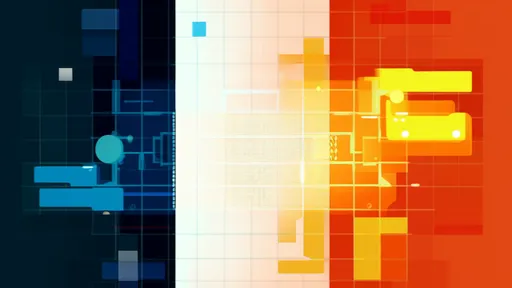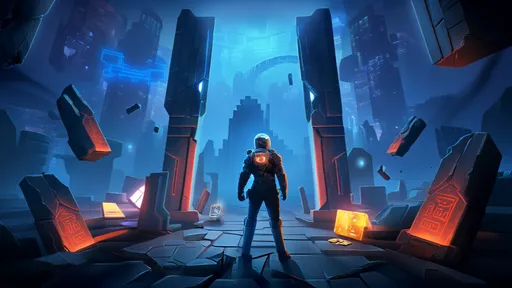The shadowy world of cybercrime has long thrived in the hidden corners of the internet, but few aspects are as lucrative—or as dangerous—as the underground market for software vulnerabilities. In recent years, a new breed of mercenary hackers has emerged, offering their skills to the highest bidder in what can only be described as a digital arms race. These hired guns operate in the murky space between ethical hacking and outright criminality, trading exploits that can compromise everything from personal devices to critical infrastructure.
Unlike traditional cybercriminals who might focus on ransomware or identity theft, these mercenaries specialize in discovering and weaponizing zero-day vulnerabilities—flaws in software that are unknown to the vendor and, therefore, have no available patch. The buyers for these exploits range from nation-states looking to bolster their cyber warfare capabilities to corporate espionage groups and even organized crime syndicates. The rise of encrypted messaging platforms and cryptocurrency has only made these transactions harder to trace, creating a thriving black market where a single exploit can fetch hundreds of thousands of dollars.
The Dark Web as a Marketplace
The dark web serves as the primary marketplace for these transactions, with specialized forums and encrypted channels facilitating the exchange of exploits. Buyers and sellers often communicate through intermediaries to maintain anonymity, and deals are frequently brokered using escrow services to minimize the risk of fraud. Reputation systems, similar to those on legitimate e-commerce platforms, help establish trust among participants. A hacker with a proven track record of delivering working exploits can command premium prices, while newcomers must often prove their worth with smaller, less valuable vulnerabilities.
What makes this market particularly insidious is its global nature. A hacker in Eastern Europe might sell an exploit to a buyer in Asia, who then uses it to target a corporation in North America. The layers of obfuscation make it nearly impossible for law enforcement to track these transactions in real time. Even when arrests are made, the decentralized structure of these networks means that the market quickly adapts, with new actors stepping in to fill the void left by those who are apprehended.
The Ethics of Exploit Trading
While some argue that the sale of vulnerabilities can serve a legitimate purpose—such as helping companies identify and fix weaknesses before they are exploited—the reality is far more ambiguous. Many of these exploits are never disclosed to the affected vendors, leaving systems vulnerable until the flaw is independently discovered or exploited in the wild. The lack of regulation in this space means that there are no guarantees about how these tools will be used once they change hands. A vulnerability sold for "defensive purposes" can easily be repurposed for offensive attacks, with no accountability for the original seller.
This ethical gray area has led to heated debates within the cybersecurity community. Some researchers advocate for responsible disclosure, where vulnerabilities are reported to vendors and only made public after a patch is released. Others, however, see no issue with selling their findings to the highest bidder, arguing that their skills deserve fair compensation. The line between white-hat and black-hat hacking becomes increasingly blurred in this environment, where financial incentives often outweigh moral considerations.
The Future of the Exploit Market
As software becomes more complex and interconnected, the demand for zero-day exploits is only expected to grow. Governments and corporations alike are investing heavily in offensive cybersecurity capabilities, fueling an arms race that shows no signs of slowing down. At the same time, increased scrutiny from law enforcement and tech companies has forced these markets to evolve, adopting more sophisticated methods to avoid detection.
One potential countermeasure is the rise of bug bounty programs, where companies pay ethical hackers to report vulnerabilities directly to them. While these programs have had some success in diverting talent away from the black market, they often can't compete with the sums offered by clandestine buyers. Until the financial incentives align more closely with ethical behavior, the underground trade in exploits is likely to remain a persistent and growing threat.
The world of vulnerability trading is a high-stakes game with no easy solutions. As long as there are valuable targets and skilled hackers willing to exploit them, this shadow economy will continue to thrive. The challenge for society is to find ways to mitigate the risks without stifling the innovation that drives the cybersecurity industry forward.

By /Jul 3, 2025

By /Jul 3, 2025

By /Jul 3, 2025

By /Jul 3, 2025

By /Jul 3, 2025

By /Jul 3, 2025

By /Jul 3, 2025

By /Jul 3, 2025

By /Jul 3, 2025

By /Jul 3, 2025

By /Jul 3, 2025

By /Jul 3, 2025

By /Jul 3, 2025

By /Jul 3, 2025

By /Jul 3, 2025

By /Jul 3, 2025

By /Jul 3, 2025

By /Jul 3, 2025